Keeping the Story Alive: Preserving Seafarers’ Welfare History at the Congregational Library and Archives
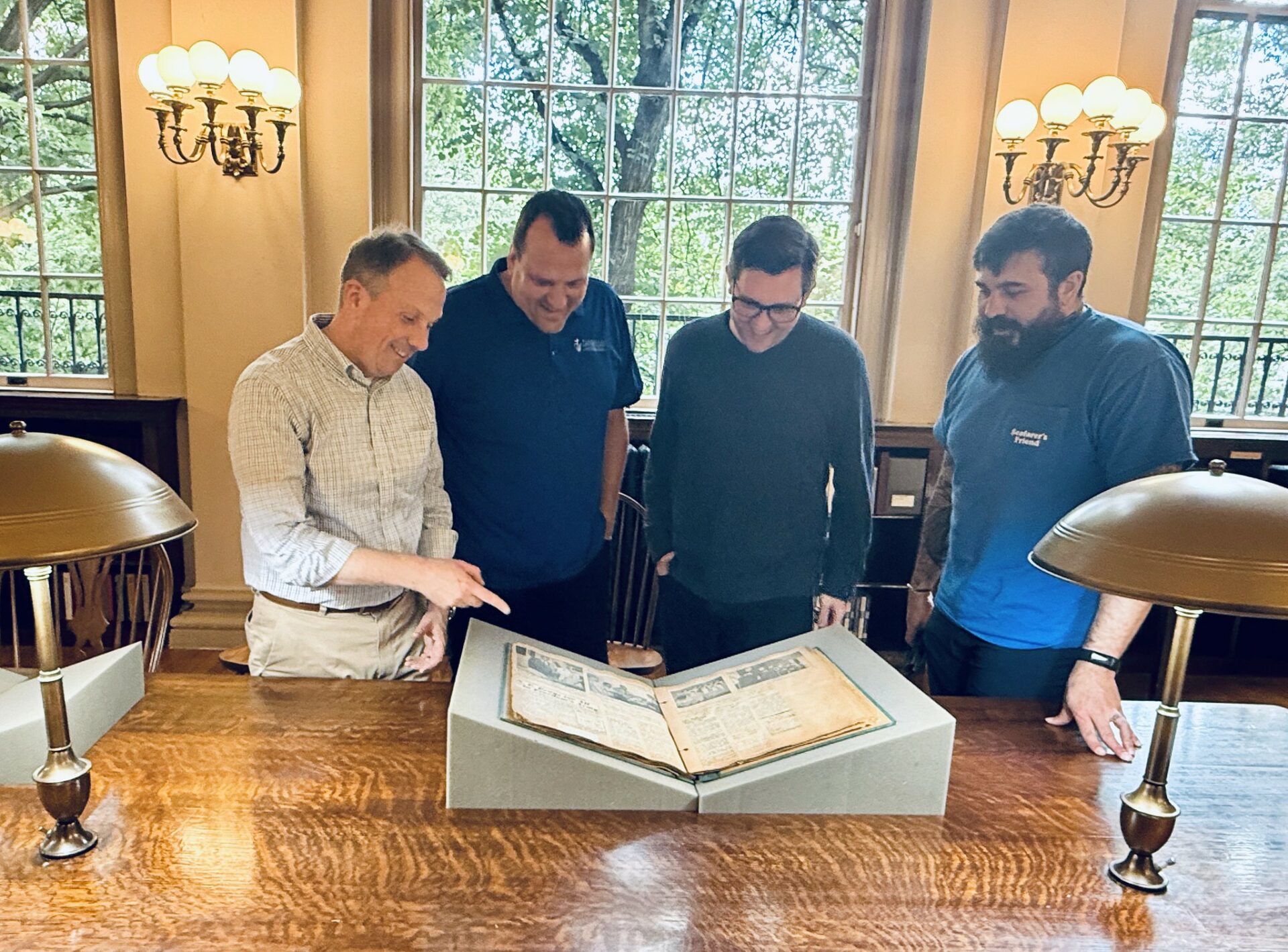
By Jason Zuidema (NAMMA)
On August 27, I had the privilege of visiting the Congregational Library and Archives in Boston, Massachusetts, together with the Rev. David Hulse, Executive Director of Seafarers’ Friend in Boston. Walking through the library’s historic building, surrounded by shelves of carefully preserved records, I was struck by how much these collections matter—not only to scholars, but to anyone who cares about the long story of Christian service. The Congregational Library & Archives (14 Beacon Street, Suite 200, Boston) has been around since 1853, and its mission has been to gather and safeguard congregational and benevolent histories from the more than 400 years of the Congregational story. These archives are not just dusty folders or forgotten scrapbooks. They are living testimonies of people of faith who sought to serve their communities, and in particular, of those who dedicated themselves to caring for seafarers who passed through this great port city.
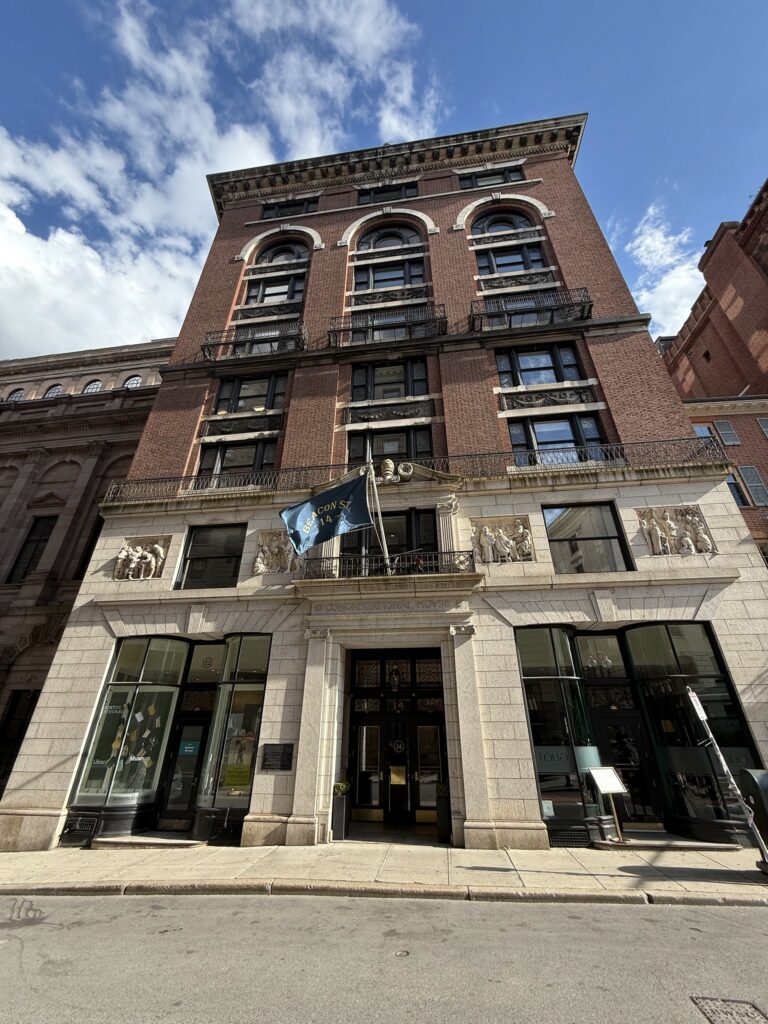
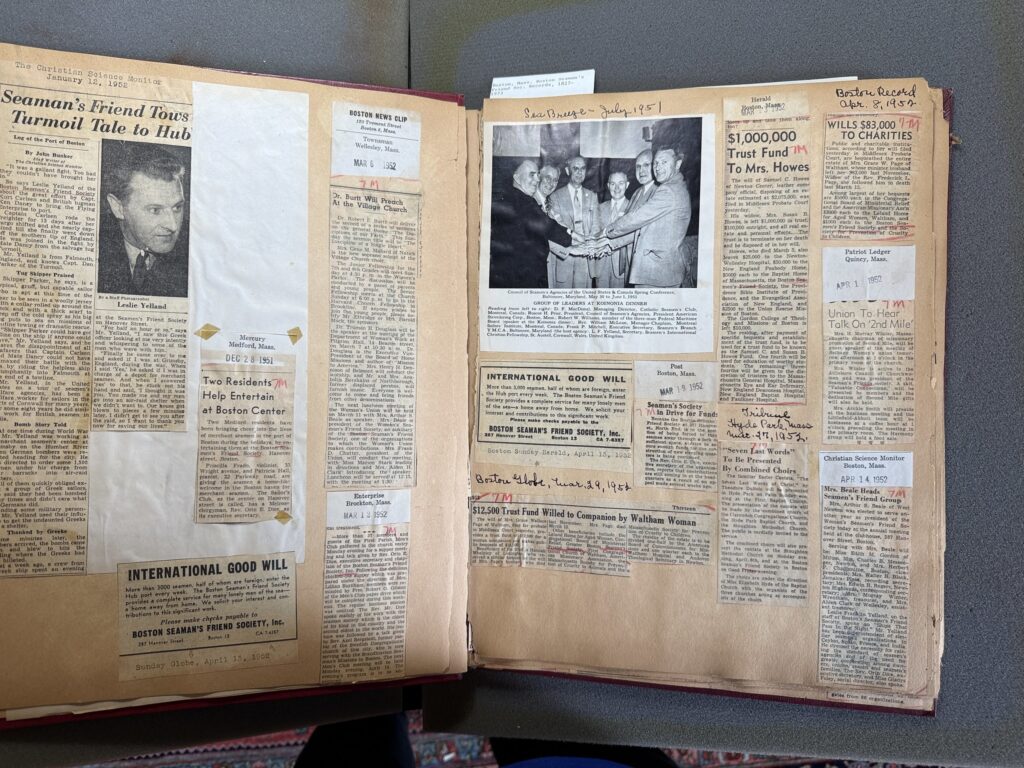
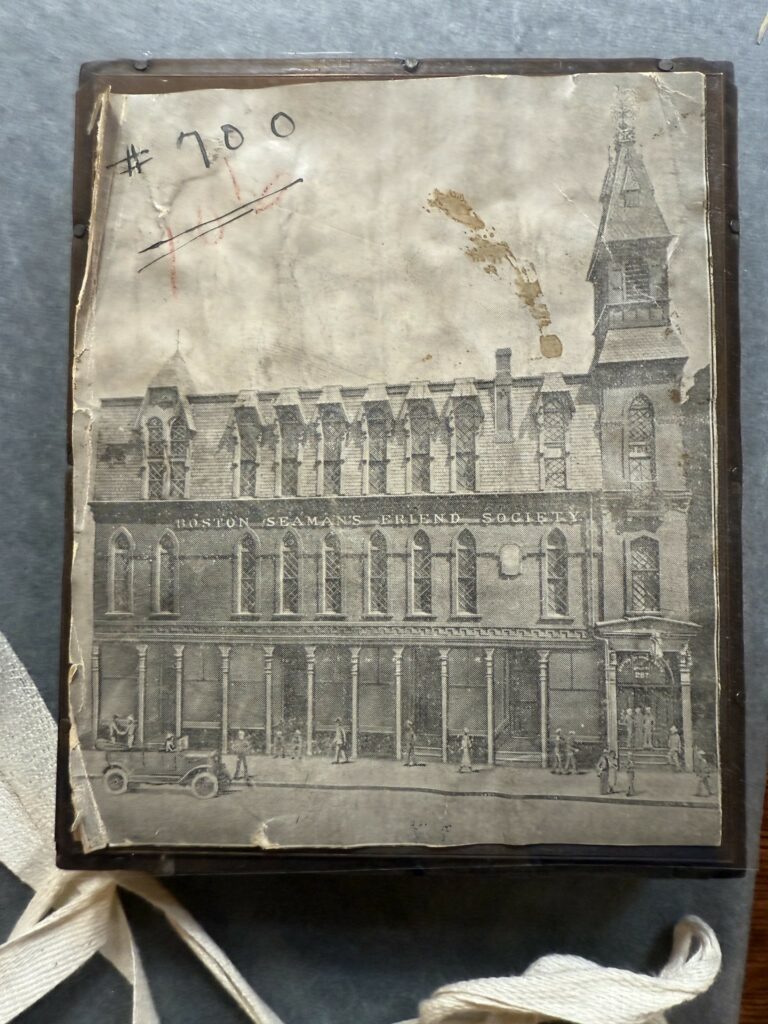
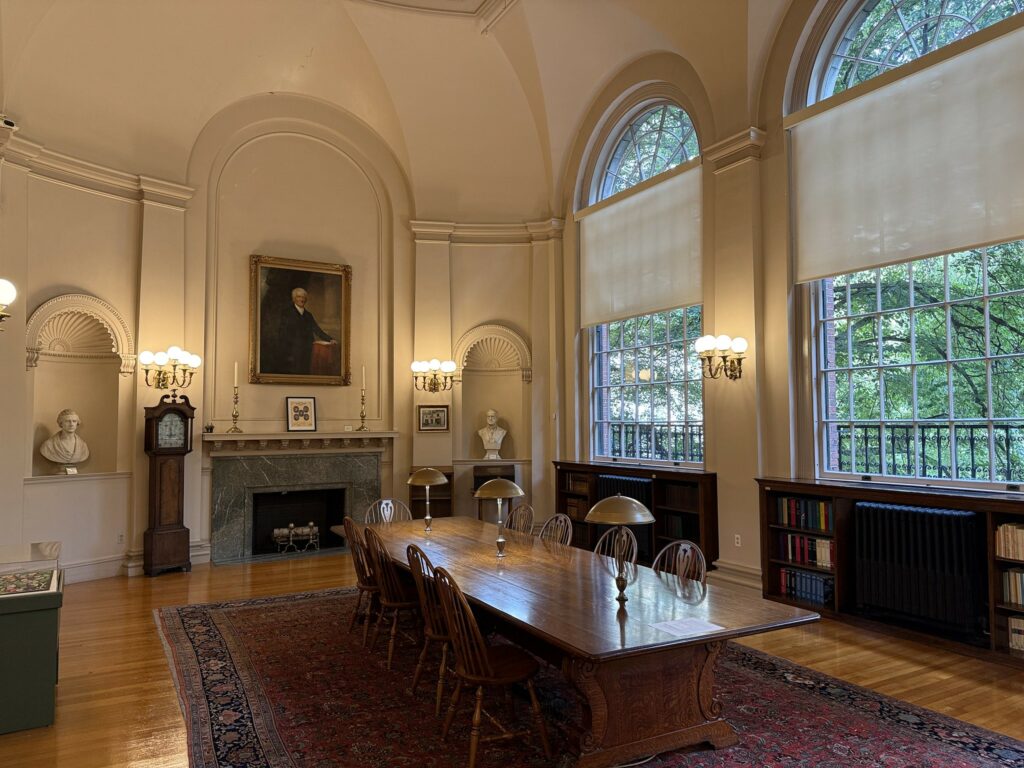
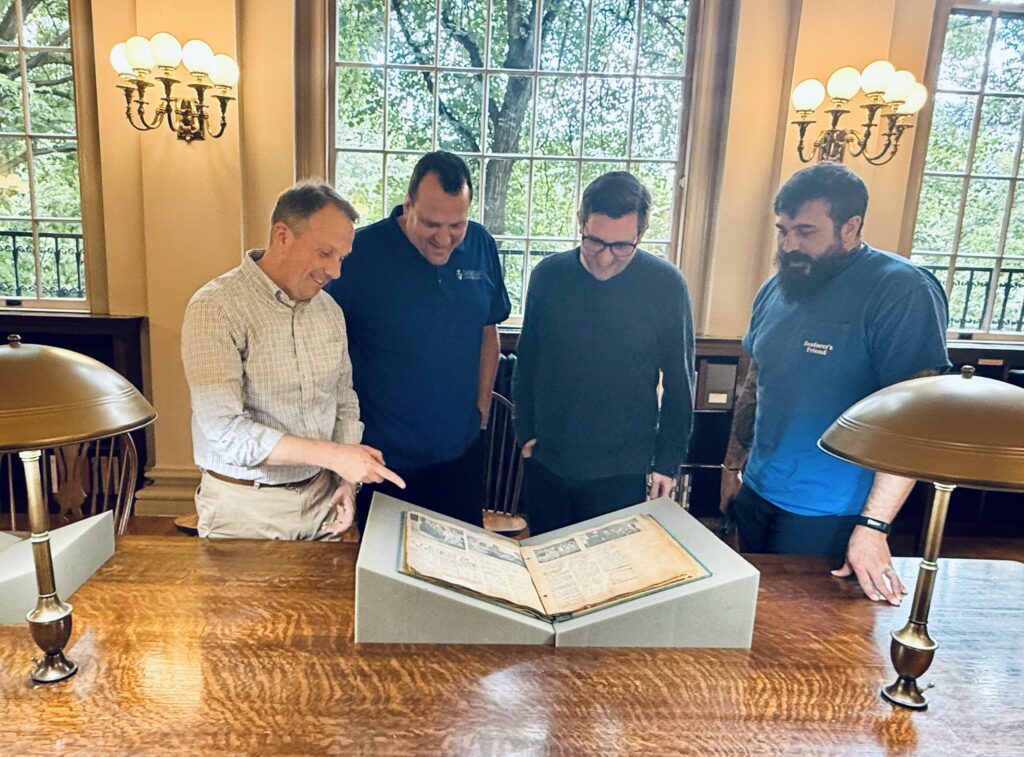
One of the treasures of this archive is the Boston Seaman’s Friend Society collection, deposited in 1988. Dr. Kyle Roberts, Executive Director of the Congregational Library and Archives, explained the importance of this collection. “We actively collect the congregational story across the country and around the world, but also locally,” he said. “The Boston Seaman’s Friend Society collection has been here since 1988. David’s predecessors had the wisdom to give that collection. I think we were so excited to get it, because it is one of the most important Boston benevolent organizations. And to have an institution that’s going to be 200 years in what—2027—it’s an honor for us to be entrusted with that collection and to be able to make it accessible to scholars who are interested in this important part both of the city’s history, but also of the Christian benevolent landscape.”
Hearing Roberts speak put the visit into perspective. The Congregational Library and Archives is one of a number of archives across North America that are entrusted with preserving the documents of seafarers’ welfare organizations. These institutions provide researchers with the opportunity to trace how missions were run, how chaplains and staff were trained, how funds were raised, and how, above all, these groups kept their vision of service front and center through turbulent decades of social and maritime change. For anyone serving in this work today, studying the past is not only an act of remembrance but also an opportunity to learn. There are practices from the nineteenth or twentieth centuries—whether in fundraising, governance, or staff formation—that still speak powerfully into our contemporary challenges.
Rev. David Hulse, as the leader of Seafarers’ Friend today, expressed how important this partnership is for him and his organization. “As Kyle said, we are on the doorstep of our 200th anniversary,” he told me. “While our current mission is, first and foremost, to care for seafarers, part of my role is the steward of this organization. We have such a rich and long history—there’s no way I could keep it all. And so, to have a partner like Kyle and his team to manage all of this for us is just a godsend. I don’t have the ability to manage it, but he and his team do. And it keeps our history here, and it keeps it alive.”
That sense of keeping history “alive” was tangible as we flipped through one of the scrapbooks from Seafarers’ Friend’s past. In an age of social media, physical scrapbooks are no longer common. Rev. Hulse shared, “I’m just grateful for the countless men and women who have shepherded my organization through the two centuries we’ve been around to keep our story and to do all of this.” His humility and gratitude summed up the value of the archives: they are not just places where old stories are kept, but spaces where those who serve today can find inspiration to record their own story faithfully.
For me, the visit was both humbling and motivating. It reminded me that archives are not afterthoughts for seafarers’ welfare organizations, but can continue to be essential parts of their mission. They testify to the faithfulness of those who came before, and they give future generations the tools to learn from our own efforts. As we face the 21st-century challenges of global shipping, seafarers’ wellbeing, and the sustainability of our ministries, it is heartening to know that we do not face them alone. The past is a companion on the journey, preserved in safe hands, ready to teach us how others trained their staff, raised their funds, and carried forward their vision. In the quiet reading rooms of Boston’s Congregational Library and Archives, the voices of two centuries whisper their encouragement to us today: keep the story alive, for the sake of those who will come after.
Featured Image: Kyle Roberts (director), Dr. Jason Zuidema (NAMMA), Billy McCarthy (archivist) and Rev. David Hulse (Seafarer’s Friend, Boston). (NAMMA Flickr)